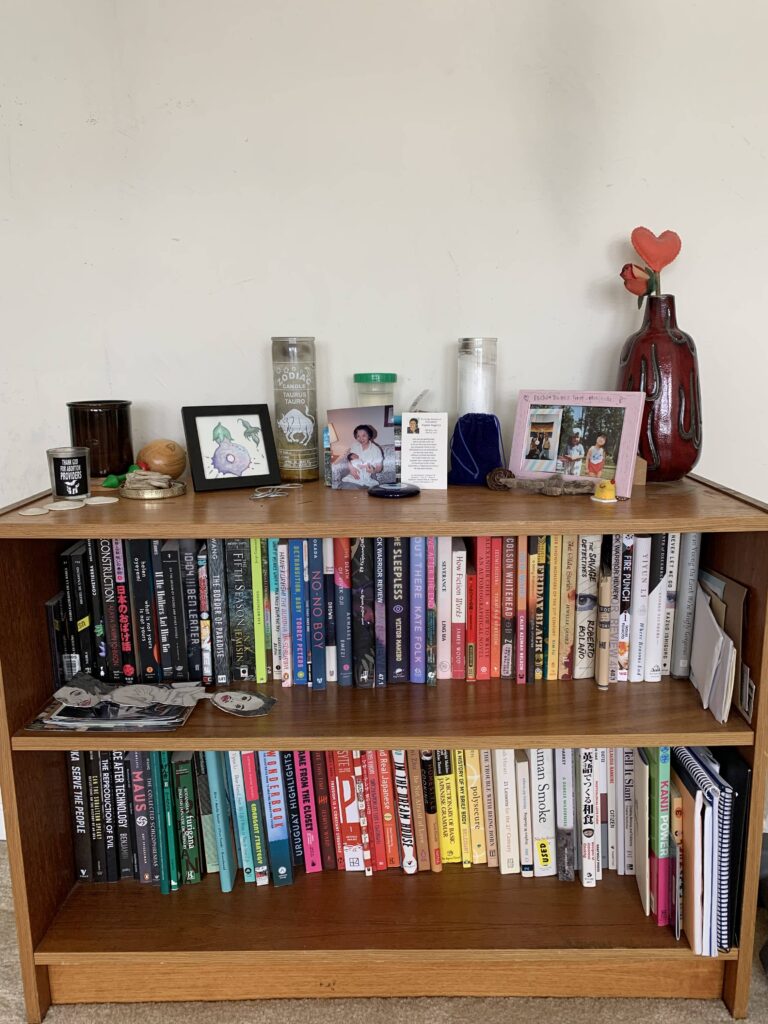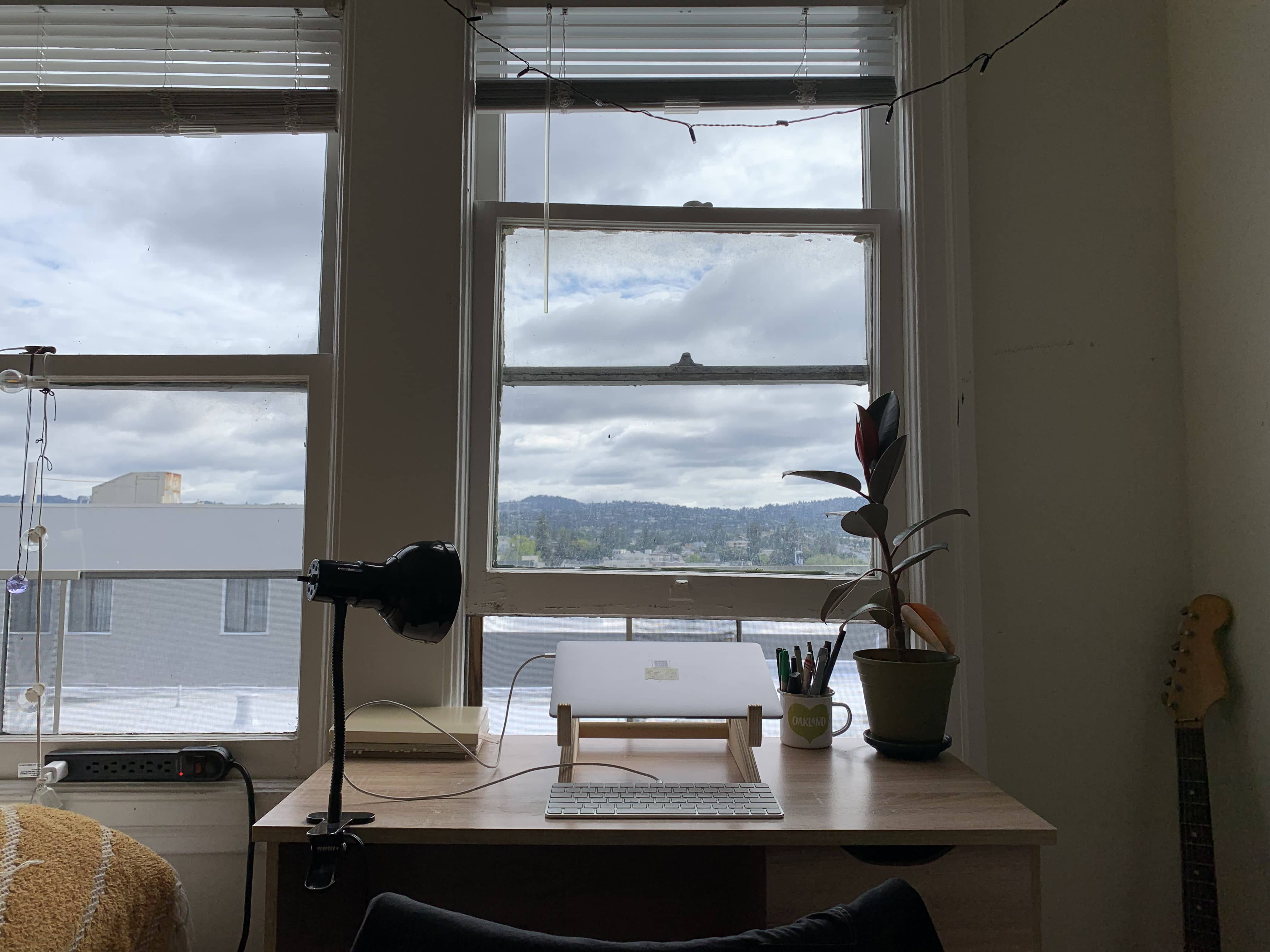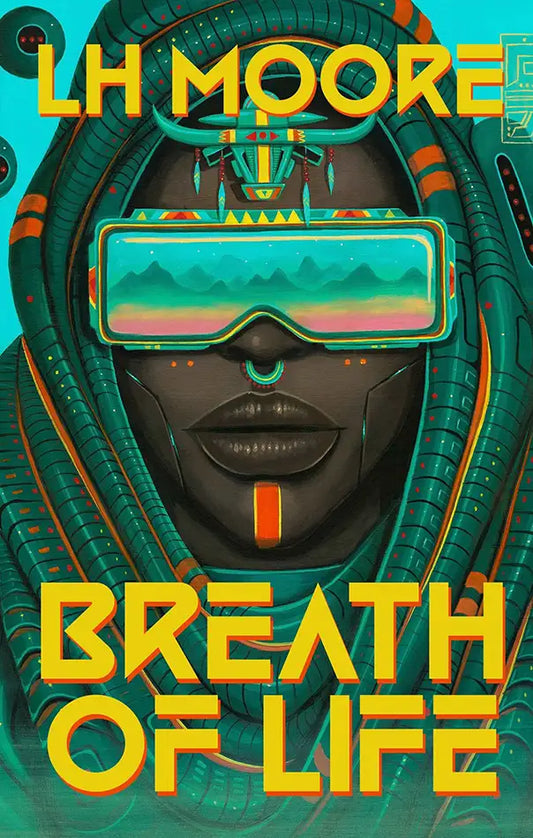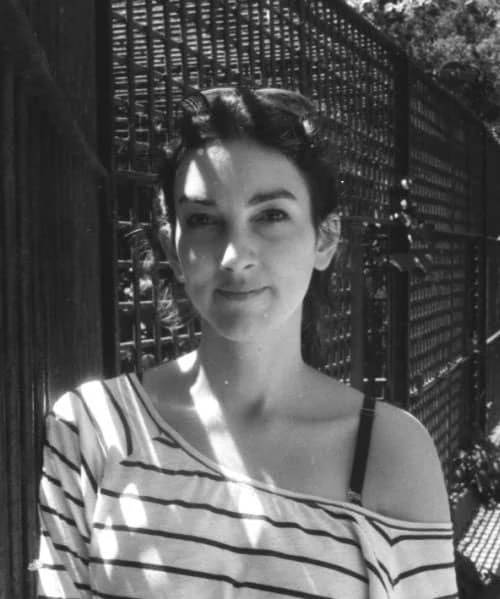
In “But I Loved You,” the protagonist is grieving a lost relationship with Ryoko, their lover who gradually revealed herself to be controlling and manipulative. This story explores what happens when someone can’t let go of the past, even when that past was not healthy. It asks, what happens if you try to replicate the good parts of something that was toxic, especially if you haven’t yet healed or even understood how the psychological trap closed around you in the first place?
I not only appreciated seeing a story featuring queer characters being flawed messy humans navigating broken relationships but also loved how subtly chilling this piece is. The Ryokos subtly chip away at the narrator’s self-confidence and identity, setting invisible traps for them and isolating them … all the while love-bombing and guilting them into feeling like the monster rather than the victim. The reader can only watch on and root for the victim to see the truth. It’s a psychological horror story that will be eerily familiar to anyone who has had the misfortune of meeting a manipulative person.
Sachiko Ragosta (they/them) is a Bay Area-based speculative fiction writer, sexual and reproductive health researcher, and sex educator. They are an alum of the Tin House Summer Workshop, a 2022 Lambda Literary fellow, and assistant editor for khōréō magazine. Find them online at sachikor.com or @v3rsachiko.
Marissa van Uden: Hi Sachiko, and thanks for joining us to talk about “But I Love You”! To start with, can you share a little about what inspired you to write about an abusive relationship in synthetic form, and how the story or characters changed from seed to final draft?
Sachiko Ragosta: Thank so much for interviewing me and for such a thoughtful intro to my piece. I started writing “But I Loved You” only a few months after I had gotten out of an abusive relationship. I was still asking myself a million what if’s that led me nowhere. In a way, the process of writing the story was its own simulation, a kind of exercise I decided to do with myself to prove that there was nothing I could have done to make my ex treat me any differently. The synthetic form came to me as a safer way one might be able to explore a do-over fantasy without re-entering an unhealthy dynamic. It soon turned into an interesting thought experiment too about whether the nature of an abusive relationship would change if the victim had created and could thus restart, power-off, reprogram, etc., their abuser.
The story evolved tremendously as I healed from that relationship and was able to separate myself from the narrator. I received the most empathic and thoughtful feedback from my Tin House cohort who, among other things, debated the morality of the narrator’s actions. Receiving this as feedback on my story rather than an evaluation of my own morality gave room for me to move away from what I needed and toward what the story itself needed, which turned out to be a lot more mess and moral ambiguity. My Tin House cohort also didn’t buy a previous ending where the narrator decides to shut down Ryoko 2.0 as she’s glitching out. I wanted the narrator to feel empowered enough to walk away at the end, but the story needed consistency and the current ending felt truer to the narrator’s circumstances.
MVU: One thing I noticed in this piece is the mirroring, not only in the replicating of a person and a relationship but in the structure itself. The narrator recreates someone who mistreated them in synthetic form, leading them to doubt themselves again and create a synthetic life (they put on a mask for their friends, lie about their personal life, and create a faux reality for this new—but not new—relationship to thrive in. Was that symmetry something you set out to do consciously or did it just emerge from the story itself?
SR: It happened kind of naturally as I asked myself about all the inevitabilities of diving back into a relationship where two realities could not coexist or overlap. A big aspect of this I wanted to explore was how much of the ghost of this relationship lived inside the narrator, how easy it would be to go back to a dynamic they’d hardly freed themself from even when the actual person was gone. Abusive relationships feel very all or nothing and I wanted the changes in the narrator’s life to reflect that.
 My bookshelf and altar to dear ones lost and far away
My bookshelf and altar to dear ones lost and far away
MVU: I love that you mentioned the ghost of the relationship living inside the narrator. That haunting really came through on the page. Nostalgia is used in this story as the glue that keeps the narrator trapped to this toxic cycle. They cling to old photographs and memories and ignore the negative parts of the relationship. Could you talk a little more about that, how the past can hold someone from moving forward, even when stepping forward and away might be the best thing for them. What is that pull to our past, do you think?
SR: I recently listened to the Between the Covers interview with Lucy Ives where she describes trauma as “experience that can never be fully relived nor fully overcome, experience that we can’t fully have and which we can’t fully cease having.” I was so struck by how precise this felt and how free of value judgement. I think it’s easy as an outsider to see when someone is clinging on or returning to the things that hurt them, but for the person stuck in that cycle, agency can be a bit skewed. I think that pull to our past can come from a lot of things: not knowing that there’s any other way, not believing that we deserve any other way, comfort with the familiar.
MVU: The CEO of Just Right is creating technology to fulfill people’s psychological needs, from the pain of loss and broken relationships to devices that help reinforce boundaries and VR for overcoming trauma. I’ve seen some interesting VR experiences created in our real world that aim to tackle trauma and other mental health issues. Are there any real-life technologies related to mental health that you are excited for and think might actually help people, and are there any that particularly worry you because of how they, like Ryoko 2.0, might harm rather than help?
SR: I love this question. I’m definitely not the first person to say this, but I think there’s a tension with technology between accessibility and quality/depth. On the one hand, some services, like the BetterHelp app for example, can make healing more accessible financially for people who have shifting schedules and responsibilities, for people with mobility limitations, for people who need discreet support. On the other hand, I think real deep healing happens in community, in relationship with real flesh and bones people! I am curious about VR as a modality for doing more behavioral or rewiring work, but don’t know enough to have an opinion about its efficacy.
MVU: You’re also an assistant editor at khōréō magazine. For readers who aren’t yet familiar with it, khōréō is a fantastic magazine of speculative fiction and migration, with a focus on diversity and elevating the voices of immigrant and diaspora authors. Could you tell us a bit about your role there actually entails (I have found that assistant editor can mean many different things at different magazines!) and what you love about it?
SR: There is so much I love about working with khōréō! As assistant editor, I help narrow down the chunk of the slush pile that will be reviewed by all editors, help make final decisions about what stories we’ll publish, and I work individually with authors to prepare their stories for publication. My team is so awesome and thoughtful, and I’ve loved learning from their sharp perspectives and empathic approach to editing. I also love how closely I’ve gotten to work with authors! I feel so fortunate to have their trust with their work, and it means even more that I get to do so for my favorite niche of weird lil diaspora stories.
 My writing desk and the best view of the crows of Oakland
My writing desk and the best view of the crows of Oakland
MVU: That sounds amazing. Empathetic editing is so important. Not only do you write and edit but I saw that you make music as well. Does this creative practice play into your storytelling? And do you listen to music while you write? If so, how do you choose what music to play for whatever you’re working on?
SR: I do see my music and writing as, if not intertwined, then complimentary practices. Each has made me more intentional with the other. Music has taught me a lot about pacing and tone, specifically how to set-up and execute a tonal shift. Storytelling has made me think more expansively about structure and taught me to ask myself why I’m including each detail, when before I might have just included whatever guitar lick or random synth sounds without thinking about how it was contributing to the overall theme or feeling I was trying to capture in a song.
While I need absolute silence when I write, sometimes if I am having a hard time getting started on the page, I will fiddle around on the guitar a bit. Words have a tendency to get a little jumbled or overaccelerated inside me whereas sounds, no matter how chaotic, never feel disorganized. It’s a lot easier to make musical choices when I’m just playing around, maybe because the choices are more finite—there’s far more words than notes you can play on a guitar—or maybe because I just don’t take myself as seriously as a musician and that’s freeing, and once I’m in that playful mood, it translates fairly well on the page.
MVU: What are some books, films, or games you’ve consumed this year that really inspired you creatively or you just can’t stop thinking about them?
SR: I’m deep in the anime Nana right now. The repressed / unrealized queer longing hurts so good :’). I also recently watched The Wheel of Fortune and Fantasy. It’s the third film I’ve watched by director Ryusuke Hamaguchi, and wow I have so much to learn from him about trusting your audience to follow a slow journey towards a major emotional payout. I loved The Wheel of Fortune and Fantasy’s triptych structure, which connects three standalone stories in their exploration of fate and the wild things we do in the whims of desire, and which holds greater consequence. It made me want to play with structure!
MVU: Thank you so much for joining us to talk about your deeply layered story and writing practices. What are you working on next? Canyou tell us a bit about any ideas or themes you’re excited to explore, and where else readers can find your work?
SR: I’m working on a collection of short speculative fiction. I’ve written a lot about self-betrayal, especially in the context of romantic relationships, and I look forward to exploring desire as a means to authenticity. As for where else to find my writing, I have an essay in It Came From the Closet: Queer Reflections on Horror, which I highly recommend if you love horror and are a little bit fruity! My co-contributors are all brilliant and brave in their vulnerability. I also try to keep my website (sachikor.com) up to date with my latest publications.
Thank you again for having me and for treating my work with such care!!









